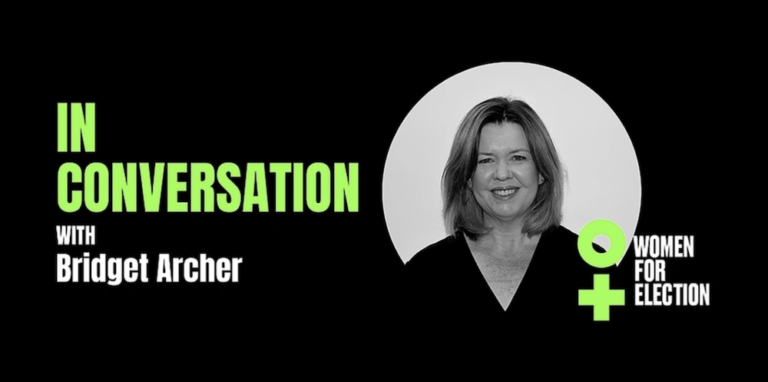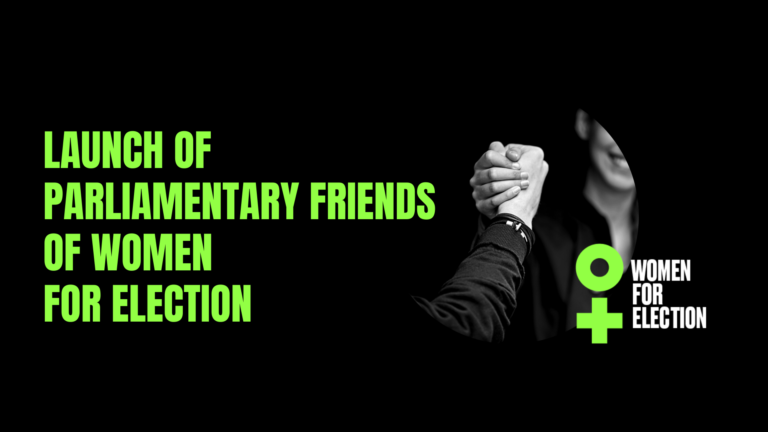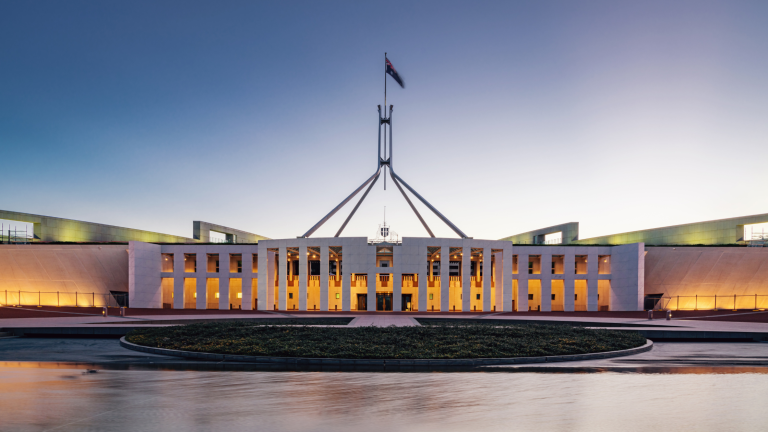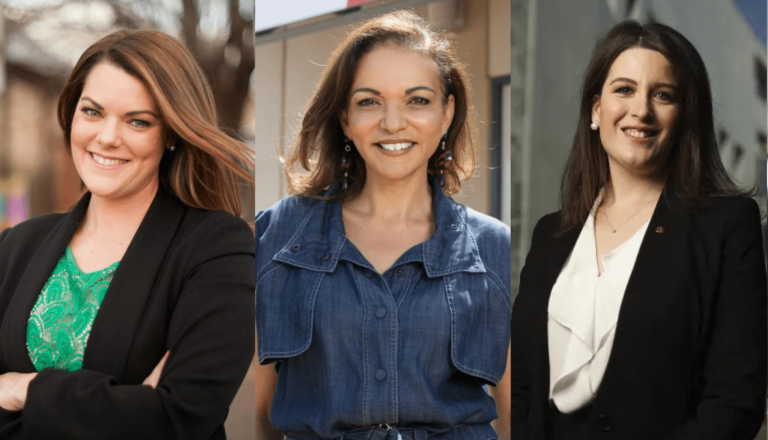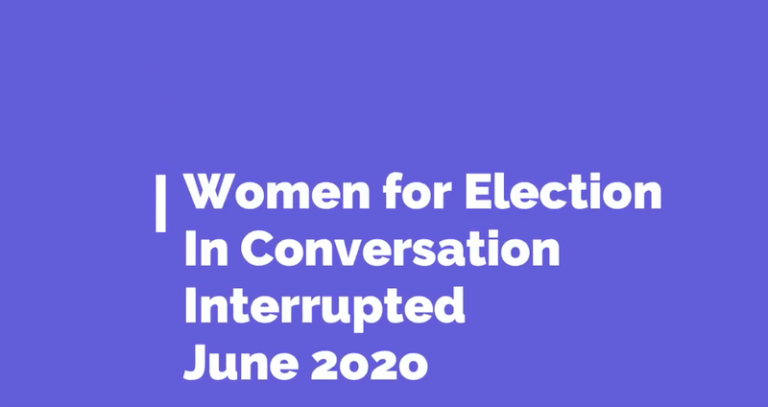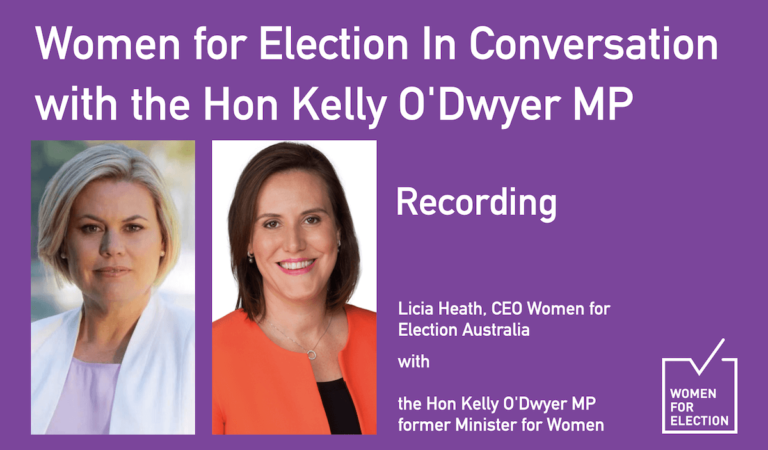Senator Fatima Payman ‘In Conversation’
Women for Election were so excited to have the newly elected Senator, Fatima Payman, join us for our August In Conversation series to share her journey into politics and what she’s planning to achieve in Canberra.
In her stirring first speech to the Australian Senate, also known as the Upper House, Senator Fatima Payman noted that she was the first person to ever wear a Hijab in Parliament, and she emphasised: Australia “is a country that offers so much to so many. People travel from all parts of the world in the hopes of calling Australia home. My family and I also had that same hope.”
Watch Senator Payman’s first speech to the senate.
Fatima, 27, is the fifth youngest person to enter federal Parliament and the youngest current Parliamentarian. She was born in Kabul, Afghanistan, the eldest of four children and her family fled the Taliban for Pakistan when she was two. They settled in Perth when she was eight.
Her interest in politics was sparked at a young age by her grandfather, who was an MP in Afghanistan before the Taliban came to power in 1996. While she does not consider herself a “political fanatic”, she says, “politics definitely ran in my blood.”
Her drive for politics also came about through her volunteer work for NGOs. Her experience volunteering at “Penny Appeal Australia” was an outlet for her to “handle my grief when I lost my dad in 2018 to leukemia. I just immersed myself into giving my time because I didn’t want to have to think about the fact that I’d just lost my dad.”
This is where she met Pierre Yang, an Upper House Labor Member for SA, “who took me under his wing. I volunteered for the Labor Party and started at his office as an electorate officer.”
According to Fatima, “it was there that my journey with the political sphere began, and that is when I started realising that change can happen and you just need to find the right platform.”
She didn’t see “any politicians that looked like us” in the Australian Parliament and didn’t feel like she or her community was being properly represented. Fatima felt that…
“If you want to make change, you’ve got to do it from within. You can’t just sit on the sidelines and pray and expect change to happen.”
At the election, Fatima was third on the Senate ticket in Western Australia, which is not a typical place to win from. Her boss at United Workers had tapped her on the shoulder and said, “I have big plans for you in the future, and I feel like you have a bright future.” He was the one who encouraged her to run. She was told it was an “unwinnable spot,” as no one has won from the third place on the ticket since 1984, “so you don’t need to stress about it.”
Fatima wanted to run in 10 years’ time but saw this opportunity as “a great learning experience.” After her dad’s passing, Fatima noted that she “has taken every opportunity because. . .life isn’t guaranteed” and that she “just wanted to make the most of every moment and not live with regret.”
Fatima reached out to people she knew within the Labor party to sign her nomination form, and the support was “overwhelming.” Within 24 hours, she received 66 signatures (she only needed 25) from valid party members and some MPs who were thrilled that she was “going for it, even if it was an unwinnable seat.” Fatima had just been the Young Labor President in 2021and was now running as a candidate for the party.
The major obstacle to running for Fatima was trying to renounce her Afghan citizenship. Hence, she was not in breach of Section 44 of the Constitution, which states that dual citizens cannot sit in parliament. She noted that “There were no official authorities back in Afghanistan” after the fall of Kabul into the hands of the Taliban. But after extensive enquiries with help from a legal team and those in the Labor party who could expedite the matter, she successfully renounced her citizenship.
Fatima wants young people to “not let their cultural expectations hold you back…don’t bring your baggage from your hometown into the country where you now live.” Fatima struggled with this within her own community. Some Afghans were not supportive because she was just 27 years old and entering “a male-dominated field of politics” that was viewed as a “dirty game for men.”
Fatima had to constantly remind herself why she was running and found it “even more difficult when you are visibly different.” Journalists and radio hosts would ask her things like, “how long did it take you to practice your accent!” Fatima came to Australia as an eight-year-old and went through the schooling system.
Fatima found these situations very challenging. “Behind this bravery or courage that you put up….it was hard…you’ve got to fake it until you make it because it’s not as simple as breaking those barriers [by] having a simple conversation.” Fatima also did not want to be reduced to a tokenistic image: “front of the photo because I look different and there is a quota.”
Fatima believes that…
So far, Fatima’s time in Parliament has been “hectic, exciting and really humbling.” She sees this past federal election as a “positive shift towards diversity and representation.” Fatima noted that “we’ve seen in this election {that} there is no such thing as a safe seat . . .everyone is taking their democratic freedom of voting seriously.”
Fatima has been “shocked at how women in other parties . . .were so welcoming towards me.” She said…
“It’s almost like female empowerment supersedes the Party.”
She believes that “women in parliament are always going to back each other up, and it was just so heart-warming to receive such a warm welcome.”
There are always so many negative stories about entering politics, particularly for women. Women for Election believe that this toxic narrative is maintained, in part, to keep women out. This is not to downplay the bad things that happen at all, it’s just that positive encounters also happen, and Fatima’s experience of a cross-party welcoming is proof of this.
Watch Fatima’s “In Conversation” with Licia Heath, WOMEN FOR ELECTION CEO.


